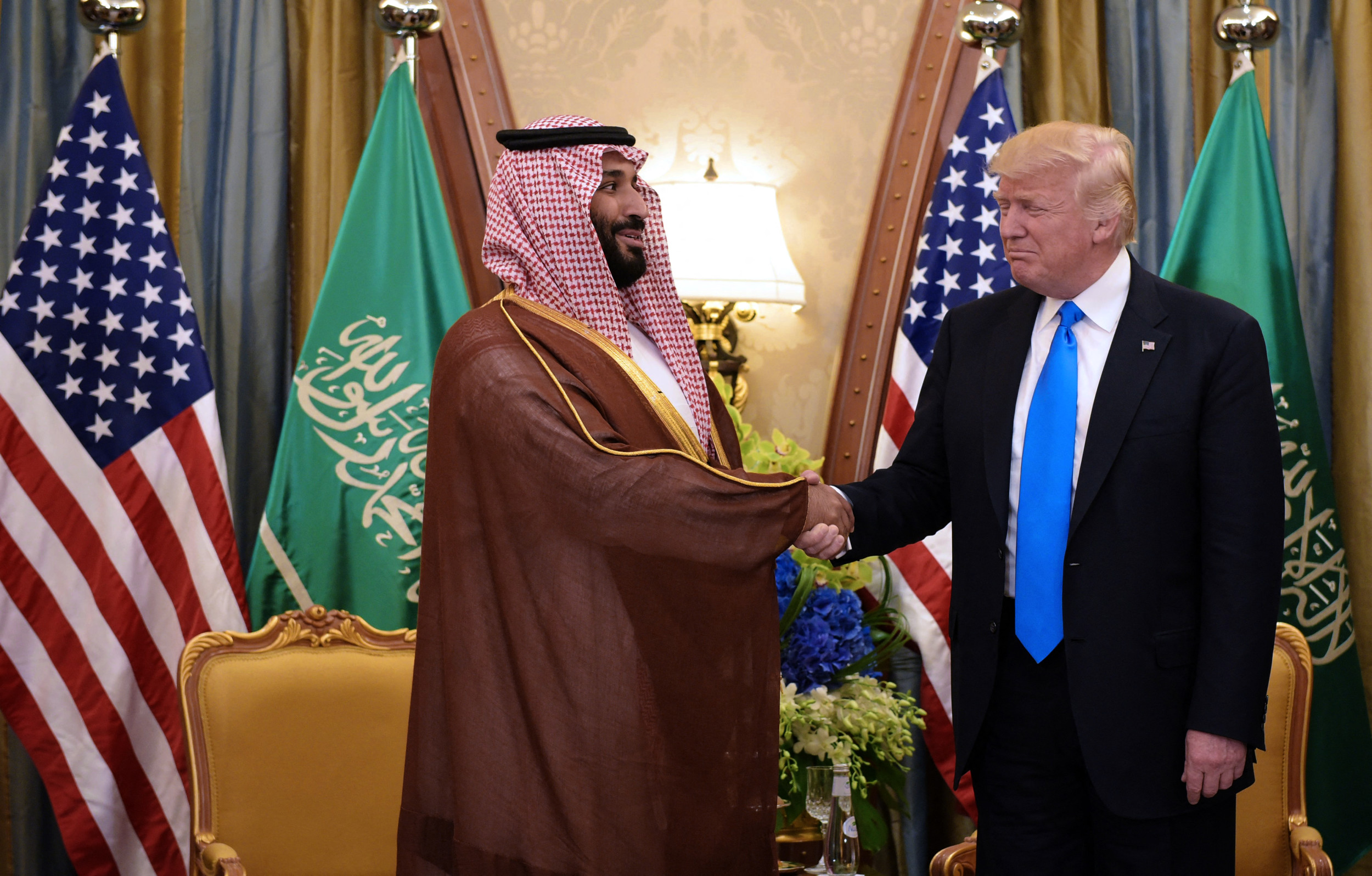





On January 24, 2025, President Donald J. Trump made his first foreign call to Saudi Crown Prince Mohammed bin Salman (MBS) following his reelection. During this conversation, MBS congratulated Trump and pledged to invest $600 billion in the U.S. economy over the next four years. This investment is a significant increase from prior commitments and reflects Saudi Arabia's ongoing strategy to diversify its economy beyond oil [7b57ea5f].
This pledge comes at a time when Saudi Arabia has experienced a 7% annual growth in services trade, and imports from the U.S. rose by 14% in November 2024. However, the Kingdom's exports fell by 5% year-on-year in November, primarily due to a 12% decline in oil exports [1a882e2d]. Trump expressed a more ambitious goal of $1 trillion in investments, emphasizing the necessity for Saudi Arabia and OPEC to lower oil prices to help mitigate the ongoing impacts of the Russia-Ukraine war. This call also underscored the importance of enhancing U.S.-Saudi cooperation for peace and security in the Middle East, particularly in light of recent geopolitical tensions following the October 7, 2023, attacks by Hamas [7b57ea5f].
The relationship between Trump and MBS has evolved into a transactional one, with Trump’s first overseas trip in 2017 being to Saudi Arabia. This historical context highlights the significance of the current negotiations, as Trump aims to solidify his administration's ties with the Kingdom through substantial financial commitments [487ec38c].
Saudi Economy Minister Faisal Alibrahim elaborated on the $600 billion investment package, which includes both investments and procurement from public and private sectors. He highlighted that this investment reflects the strong bilateral relationship between Saudi Arabia and the United States, and noted that the total spending from the launch of Vision 2030 in 2016 until 2030 will amount to 12 times the current investment [98f833ad].
In a related diplomatic effort, U.S. Secretary of State Marco Rubio held discussions with the Crown Prince on January 23, emphasizing the importance of bilateral relations and regional stability. This dialogue is indicative of the U.S. administration's commitment to fostering a stable Middle East while enhancing economic cooperation with Saudi Arabia [9245afb2].
Additionally, Prince Faisal bin Farhan bin Abdullah visited Lebanon on January 23, marking the first visit by a Saudi Foreign Minister in 15 years. He expressed optimism for Lebanon's future and the necessity of reforms, highlighting Saudi Arabia's role in supporting regional stability [9245afb2].
As Trump navigates complex foreign policy issues regarding Iran and the broader Middle East, the implications of this substantial investment extend beyond economic metrics. It may influence global trade dynamics and reshape the landscape of U.S.-Saudi relations, particularly as both countries seek to bolster their economies amidst rising geopolitical tensions [9a73b239].
Dr. Andreas Krieg notes that Trump's approach favors Gulf politics, and he is perceived as a trustworthy dealmaker by Saudi leadership. However, challenges remain in convincing Saudi Arabia to lower oil prices and support for a Palestinian state, as the Kingdom also values its relationship with China [487ec38c].
The successful implementation of these investments could play a pivotal role in reshaping the future of U.S. manufacturing and its position in the global economy, while also addressing the pressing needs of the American workforce [9a73b239]. Furthermore, a World Economic Forum gathering is scheduled to be held in Saudi Arabia starting spring 2026, further emphasizing the Kingdom's growing role in global economic discussions [98f833ad].
Despite the optimism surrounding the investment pledge, Bahrain's inflation rate increased to 0.5% in December 2024, and the Gulf Cooperation Council (GCC) economic expansion is being driven by non-energy sectors, even amidst OPEC+ production cuts. Growth is expected to improve in the second half of 2025, indicating a cautious but hopeful economic outlook for the region [1a882e2d].
In light of these developments, Daniel R. DePetris argues that Trump should approach the U.S.-Saudi relationship with caution, particularly regarding Saudi demands for a U.S. security guarantee. The article emphasizes that while Saudi Arabia possesses significant oil reserves, it may need the U.S. more than the U.S. needs it, especially considering the regional threats posed by Iran [59a2dab3].